BBA Supply Chain Management (Online)
Career Aspirations Meet Industry Opportunities
Yorkville University’s Bachelor of Business Administration specializing in Supply Chain Management prepares strategy architects for efficient, sustainable, and successful businesses.
Become a Supply Chain Expert – Our industry-leading curriculum provides an in-depth understanding of today’s highly complex supply chains, including purchasing, inventory, distribution, logistics and sales.
Learn from Real-World Examples – With a focus on sustainability and cutting-edge technologies, we equip you with the forward-thinking mindset to solve global business issues with informed and innovative solutions.
Graduate Work-Ready – By completing business cases and projects, you graduate with a deep understanding of the communication, teamwork, and problem-solving skills needed in your career.

$99,473
Average Supply Chain Management salary in Canada**
100
+
Nationalities represented in classrooms
20
Approximate number of students per class
Program Benefits
Professional Designations
Yorkville University offers students the opportunity to earn prerequisites to apply for a variety of professional designations and stand out in the competitive job market. Employers value graduates who are members of relevant professional associations and who demonstrate a commitment to upgrading their professional skills. Some professional associations also allow students to apply for membership, which can help you gain on-the-job recognition and advance your career before you graduate.
Career Outcomes
Yorkville University graduates are highly regarded, intuitive leaders, with the skills required to compete and succeed.
With an online portfolio ready upon graduation, Yorkville alumni may seek management positions in their field, embark on an entrepreneurial endeavour, or prepare for an advanced degree such as an MBA.
The rewarding careers available to Yorkville graduates include those within the areas of:
-
Finance
-
IT
-
Manufacturing
-
Health Care
-
Oil and Gas
-
Entertainment
-
Media
-
Higher Education
-
Real Estate
-
Construction
-
Retail
-
Health, Wellness and Fitness
Faculty
Meet the Associate Dean

Dr. John Morrison
Associate Dean, Online BBA Program
Dr. John Morrison is the Associate Dean of the Online BBA Program at Yorkville University and brings both academic and industry experience into the classroom. He worked for over 8 years in sales and marketing leadership roles at both domestic and multinational corporations across various manufacturing industries including consumer packaged goods and agriculture/forestry. John has completed a BBA, MBA, and most recently a PhD in Organizational Psychology at the University of New Brunswick. He is passionate about the science related to building and fostering high-performing teams, as well as workplace environments that contribute to employee flourishing. Over the past decade, John has developed, taught courses, and held academic leadership positions across both public and private post-secondary institutions. John has published in the area of organizational psychology and is actively engaged in research and the development of future publications.
Meet the Faculty
Admission Requirements
Yorkville University’s Bachelor of Business Administration Online program is 100 percent online and can be taken from anywhere in the world.
The Bachelor of Business Administration Supply Chain Management Online degree is offered by our Vancouver campus.
Vancouver Campus, British Columbia
High School
Students entering from high school are required to have a British Columbia Certificate of Graduation or equivalent with at least a 65 percent average in the following:
- Foundations Math 12 or Pre-Calculus Math 12 or Principles Math 12
- English 12/English 12 First Peoples
Students entering from high school are also required to provide:
- Official high school transcript*
- Completed online application
- Application fee of $150
*All official transcripts need to be sealed, stamped and sent directly from the issuing institution to Admissions Services for evaluation.
Any questions? Please contact an Admissions Advisor.
University and College
Students entering from another university or college will be assessed on a case-by-case basis.
Graduates of a two-to-three-year college or university program will be considered for block transfer credits of up to a maximum of 60 credits.
Students are required to provide:
- Official transcripts from all post-secondary institutions attended*
- Detailed course descriptions if applying for transfer credits
- Completed online application
- Application fee of $150
*All official transcripts need to be sealed, stamped and sent directly from the issuing institution to Admissions Services for evaluation.
Any questions? Please contact an Admissions Advisor.
Mature Student
A mature student is an applicant who has not achieved a British Columbia Certificate of Graduation or its equivalent, and who is at least 19 years old on or before the commencement of the program.
Yorkville University’s admissions policy for mature students creates a pathway to enrollment for those who can demonstrate academic competence equivalent to those of British Columbia high school graduates.
Mature students will be evaluated on the successful completion of courses at the post-secondary level or through proficiency assessments, and are required to provide:
- Official transcripts from all post-secondary institutions attended*
- Detailed course descriptions if applying for transfer credits
- Completed online application
- Application fee of $150
*All official transcripts need to be sealed, stamped and sent directly from the issuing institution to Admissions Services for evaluation.
Any questions? Please contact an Admissions Advisor.
English Language Requirements
English is the primary language of instruction at Yorkville University.
Applicants whose native language is not English must prove proficiency in one of the following ways:
- Completion of secondary education where English was the primary language of instruction.
- Completion of at least 12 credit hours of previous post-secondary education where English was the language of instruction.
- Completion with the equivalent of “B” standing of a post-secondary level English for Academic Purposes program accredited by Languages Canada.
- Confirmation of an official Test of English as a Foreign Language (TOEFL) score of at least 80 (Internet-based version).
- Confirmation of an International English Language Test System (IELTS) overall score of 6.5 (no band score below 6).
- Confirmation of a Canadian Academic English Language Test (CAEL) score of 60 or higher (no component proficiency score below 50).
- Confirmation of a Common European Framework of Reference for Languages (CEFR) score of Level B2 or higher.
- Confirmation of a Canadian Language Benchmarks score of at least 8 (no component score below 7).
- Confirmation of a Duolingo minimum score of 120 (no subscore below 105).
- Confirmation of a score equivalent to these scores on another test of English language proficiency recognized by and acceptable to the University.
Note: Yorkville University reserves the right to require proof of language proficiency before permission is granted to register in academic courses.
Conditional Admission
Applicants with English language proficiency scores that fall below the standards required for admission, may be considered for conditional admission in the following circumstances:
IELTS score (or equivalent)
6.5 and above
Students will enroll in the regular academic program.
6.0 to less than 6.5
Students will enroll in the regular academic program and in an English for Academic Purposes (EAP) course in Term 1.
The EAP course (ENGL180) is available at select campuses concurrently as part of Yorkville University’s programs and counts towards the completion of the degree. There is no additional cost to the program when students take the EAP course.
Any questions? Please contact an Admissions Advisor.
Tuition and Fees
Course Descriptions
The Bachelor of Business Administration Supply Chain Management Online program covers complex supply chains in global markets, including purchasing, inventory, distribution, logistics and sales.
In addition, students study core business functions, including leadership, strategy, operations, finance and marketing to prepare for on-the-job challenges.
A full listing of Bachelor of Business Administration program courses includes:
Introduction and General Business Education
BUSI1003 | Math for Business
3 Credits (required)
A brief review of pre-calculus math. Topics include: logarithmic and exponential functions; limits; introduction to derivatives; linear systems; matrices; systems of linear inequalities; difference equations; arithmetic and geometric sequences; annuities; and installment buying. Applications to business and economics are emphasized throughout the course.
- Prerequisites: New Brunswick Advanced Math 122 or equivalent
BUSI1013 | Statistics for Business
3 Credits (required)
This course focuses on the following topics: basic theory of consumer behavior; production and costs, Partial equilibrium analysis of pricing in competitive markets, and general business equilibrium and welfare and externalities. Students will also explore to the theory of the firm: competition and monopoly. Note that this course is being phased out. Students entering the BBA after October 2019 will complete BUSI 1083 Microeconomics.
- Prerequisites: BUSI 1003 Math for Business
BUSI1033 | Introduction to Business
3 Credits (required)
This course explores the interrelatedness of the various functions of business operations, and sets the context for understanding the broader environment in which businesses and organizations function. Attention will be given to key functional areas of business include resource bases, organizational structures, corporate culture, financial systems, and management theories prevalent in today’s business environment. Interactive business simulation software will be used as a complement to course readings to expose students to core business functional areas and begin developing their business decision making skills.
- Prerequisites: None
BUSI1043 | Introduction to Financial Accounting
3 Credits (required)
Introduces the language of financial accounting, designed to capture, summarize, and communicate the economic facts about an organization in a set of financial statements and related descriptive notes. Focus is on the principles of accounting and reporting to various users that are external to the organization and will emphasize what information is provided in financial statements, as well as the uses and limitations of this information.
- Prerequisites: BUSI 1003 Math for Business
BUSI1083 | Microeconomics
3 Credits (online) (Tier 2)
This course teaches the theory and concepts of microeconomics within the context of market decisions. It examines the concepts of supply and demand; pricing and elasticity; consumer behaviour and its impact on economic decisions; market structures that form the basis for various levels of competition; different types of markets, including labour and factor markets; and the role of government as it relates to microeconomic policy. It synthesizes theoretical concepts and examples of everyday events.
- Prerequisite(s): None
BUSI1093 | Introduction to Marketing
3 Credits (required)
An introduction to the basic concepts and principles of the marketing function. The course follows the evolution of the Marketing discipline through to the current era of the Social Marketing Concept. Tools necessary for effective Marketing practice and environmental and contextual influences are examined. Students learn the basic elements of the Marketing Mix as well as segmentation and positioning tools. The course expands students’ understanding of Canadian and international marketing structures and techniques including defining and segmenting target markets, using planning and forecasting techniques, analyzing costs and benefits of marketing mixes, interpreting market research data, consumers and consumerism, industrial market potentials.
- Prerequisites: None
- Anti-requisite: BUSI 1093 Introduction to Marketing
BUSI1073 | Business Writing and Communications
3 Credits (required)
Students learn how to effectively communicate in a business setting characterized by rapidly changing technologies and an increasingly diverse workforce. The course emphasizes oral and written communication across a number of mediums and business applications. Students develop skills in business writing and presentations; and learn how to effectively communicate in business settings including the following: delivering good and bad news, applying persuasive business writing and presentation techniques; preparing business reports; communicating for teamwork and meetings with cross-cultural considerations. In preparation for subsequent courses, students will also receive an introduction to academic writing, distinguishing the difference between academic and business writing.
- Prerequisites: None
Core Business Courses
BUSI1063 | Business and Sustainability
3 Credits (required)
This course will explore the impact of business activity on ecosystems, and examine methods of approaching business activity from a sustainability perspective. Students will look at how ecosystem-based management (EBM) informs business decisions in today’s context, and will investigate the implications of EBM across various business actions and activities.
- Prerequisites: None
BUSI2003 | Macroeconomics in Global Context
3 Credits (required)
An overview of macroeconomic issues: the determination of output, employment, unemployment, interest rates, and inflation. Topics include: monetary and fiscal policies; public debt; and international economic issues. Basic models of macroeconomics are introduced and principles within the experience of the North American and other economies are illustrated.
- Prerequisites: None
BUSI2013 | Business Decisions Analysis
3 Credits (required)
This course prepares students to make applied and informed business decisions through the use of modeling, analytical and problem-solving techniques. Specifically, students will develop an understanding of the concepts of certainty, uncertainty, probability and risk analysis, as well as basic probability concepts, random variables, descriptive measures, and properties of distribution, statistical decision theory and Bayesian approaches. Based on this foundation, the course will then delve into discrete and continuous probability models and their applications to solving business problems.
- Prerequisites: BUSI 1013 Statistics for Business
BUSI2023 | Business Law
3 Credits (required)
Students gain a basic understanding of fundamental structural legal frameworks under which firms must operate. The course begins with the basic building blocks of business law, followed by a review of legal business structures, including sole proprietorship, corporation, partnership, limited liability company, for profit, not-for-profit, and public firms. The second phase of the course examines a broad range of legal issues that could impact business operations, including intellectual property, contracts, product development, mergers and acquisitions, international trade, business disputes, bankruptcy and reorganization.
- Prerequisites: None
BUSI2033 | Organizational Behaviour and Management
3 Credits (required)
This course explores the interaction among individuals and organizations, and how this interaction can impact others within the organization or the organization itself. Even in today’s technologically driven world, the effectiveness of organizations is still rooted in their ability to leverage the full potential of the people involved within their operations. Students are introduced to various topics including value systems, motivation, teams, effective communication, power and conflict, organizational culture and structure, leadership, ethics and organizational change. They emerge from the course with a better understanding of the role of people within organizations, and how their own personal strengths can contribute positively to the organizations to which they belong.
- Prerequisites: None
BUSI2043 | International Business Environment
3 Credits (required)
Introduction to international business as it relates to the functional areas of managing business operations. Focus is on how business decisions are influenced by culture, economics, and marketing. Additional emphasis is on the opportunities and problems associated with doing business in an international environment, with reference to case analyses of specific countries or regions. The principles examined are constant, although the international geography may vary according to the interests of the faculty member and students.
- Prerequisites: None
BUSI2053 | Business Ethics
3 Credits (required)
Overview of the ethical dimension of business in the context of understanding ethical reasoning as a critical success factor for businesses. Students should develop moral sensibilities and an awareness of social responsibility within a business management perspective. Topics include: the relationship 112 between business and society; the link between corporate strategy and social responsibility; the importance of corporate reputation; ethical decision-making; and the impact that business has on the environment.
- Prerequisites: None
BUSI2173 | Information Technology for Managers
3 Credits (required)
Information technology is a vital strategic tool to gain competitive advantage. As such, this course prepares business professionals to understand and manage informational and technological systems, tools, partners and projects. Students will be introduced to the infrastructural elements of technological systems, as well as several types of such systems including decision support systems, informational and database systems, and e-commerce/e-business. To be better able to manage these vital projects effectively, the course will introduce students to the system development lifecycle and the basics of managing IT projects. Finally, pressing issues on information security, privacy, as well as ethical and social considerations will be discussed.
- Prerequisites: None
BUSI2083 | Managerial Accounting
3 Credits (required)
This course focuses on how managers use accounting information to make decisions, with an emphasis on job costing and activity-based costing.. The course also covers product costing, budgetary control systems, and performance evaluation systems. for planning, coordinating, and monitoring the performance of a business; flexible budgets; and break-even analysis. In addition, students will be introduced to the concept of flexible budgets and break-even analysis.
- Prerequisites: BUSI 1043 Introduction to Financial Accounting
BUSI2093 | Introduction to Managerial Finance
3 Credits (required)
Introduction to major concepts in finance and investments, such as the time value of money, discounted cash flows, and risk and return. Further examination of how firms decide to finance projects they assess as being worthwhile and how to make investment decisions. Consideration is given to capital structure, dividend policy, financial instruments, risk-return trade-offs, financial planning, forecasting, the cost of capital, asset valuation, working capital management, and performance assessment.
- Prerequisites: BUSI 2083 Managerial Accounting
BUSI2103 | Human Resource Management and Development
3 Credits (required)
This course introduces students to the theory and practice of personnel management and the significant issues that are part of the management of human resources in organizations. Students who complete this course will be able to design and implement an effective human resource management strategy. In addition, students are expected to identify specific HR management skills that they need to develop and begin the process of developing these skills.
- Prerequisites: BUSI 2033 Organizational Behaviour and Management
BUSI2113 | Production/Operations Management
3 Credits (required)
Production and Operations Management (POM) involves the study of design, planning, establishment, control, operation, and improvement of the activities/processes that create a firm’s final products and/or services. The growing economic importance of service activities, however, has broadened the scope of POM function (in fact, the course will focus more on service facilities). Large scale globalization, short product life cycle, and more informed customers means that successful management of operations, careful design, and efficient utilization of resources is an absolute must not only to add to the bottom line of a firm, but even for its mere survival. This course will consider both manufacturing and service operations, emphasizing their differences as well as similarities. It will also examine the role of operations management in the organization by exploring a number of concepts and techniques.
- Prerequisites: BUSI 1013 Statistics for Business
BUSI4073 | Strategic Management
3 Credits (required)
The Strategic Management course is about identifying and building a firm’s competitive advantage – understanding and improving the myriad of factors and processes (e.g. corporate performance, governance, leadership, corporate culture, technological innovation, business ethics, social responsibility) that reduce the risk of failure and increase the likelihood of success in achieving a firm’s strategic objectives. This course focuses particularly on the role of the general manager in formulating, implementing, evaluating, and measuring business decisions on behalf of the firm’s owners – the shareholders. Students are introduced to and learn to apply concepts and tools that allow them to analyse the environmental (economic, legal, social, political), internal, market, and competitive factors that shape strategic and competitive advantage. The course integrates and builds on knowledge and skills acquired in earlier courses in the program.
- Prerequisites: Students must have completed 90 credit hours of the BBA program. BUSI 4153 Business Strategy.
(In BC Academic Calendar but not ON or NB)
BUSI4153 | Business Strategy
3 Credits (required)
Introduction to a strategic perspective on issues that concern contemporary businesses, drawing on and exploring concepts from a number of undergraduate business courses (marketing, finance, accounting, management, and organizational behaviour). Exploring appropriate methodologies/approaches to strategic analysis, students use material from other courses in the analysis and resolution of complex business situations.
- Prerequisites: BUSI 1043; BUSI 2033 Organizational Behaviour and Management; BUSI 1093 Introduction to Marketing; BUSI 2073 Management Information Systems; BUSI 2173 – Information Technology for Managers; BUSI 2083 Managerial Accounting; BUSI 2093 Introduction to Managerial Finance; BUSI 2103 Human Resources Management and Development; BUSI 2113 Production/Operations Management.
Anti-requisite: BUSI 4073 Strategic management
BUSI2133 | Organization Theory and Design
3 Credits (required)
The emphasis in this course is on developing approaches in different types of organizations (e.g. not-for-profit) to deal effectively with the specific issues they may face. The course will explore principles and practices of management and administration as they are adapted to board-management-staff relations, board governance, recruiting and motivating, human resource management, accountability, organizing for and managing growth and change, analysis of an organization’s market and organizational strategic planning.
- Prerequisites: BUSI 2033 Organizational Behaviour and Management.
BUSI2153 | Entrepreneurship
3 Credits (required)
Focusing on the practical aspects of establishing and developing a business, emphasis is placed on analyzing the strengths and weaknesses of a newly formed business. Topics include: opportunity recognition, feasibility study, risk, venture capital sources, business economics, marketing requirements, negotiations, and resource needs. Case studies will be used.
- Prerequisites: BUSI 1023 Introduction to Managerial Economics; BUSI 1043 Introduction to Financial Accounting; BUSI 2033 Organizational Behaviour and Management; BUSI 1093 Introduction to Marketing; BUSI 2083 Managerial Accounting.
BUSI2163 | Marketing Strategy
3 Credits (required)
A course to develop the skills and approach required to formulate and effectively implement marketing strategies. The course reviews the theory and practice of identifying market opportunities, evaluating firm positioning, selecting and evaluating potential markets and making effective marketing mix decisions through analysis of market research data. All elements of strategic decision making are examined, including market segmentation, market target choice, product and/or service offering(s), pricing, promotion and distribution choices that support positioning decisions as well as after sales service, support and evaluation. Students develop hands on knowledge of the impact of strategic marketing decisions on a firm’s market position, bottom line and investment attractiveness through interaction with hands on business simulation software.
Prerequisites: BUSI 1093 Introduction to Marketing.
Business Electives
BUSI3403 | Intermediate Accounting 1 – Assets
3 Credits (online) (elective)
This course builds on the integrated framework for analyzing, interpreting and preparing financial statements introduced in previous accounting courses. Emphasis is placed on accounting policy choices and the criteria by which such choices are made, as well as on analyzing financial statements that are prepared using different accounting policies. Students will examine, in‐depth, the effects of accounting concepts on income determination and on asset, liability and shareholders’ equity valuation.
- Prerequisites: BUSI1043 – Introduction to Financial Accounting; BUSI 2083 – Managerial Accounting.
BUSI3413 | Intermediate Managerial Accounting
3 Credits (online) (elective)
This course focuses on how managers use accounting information to make effective business decisions. Students will study different types of reports, financial statements and analytical tools, which may be used by managers to effectively plan, coordinate, evaluate and monitor qualitative and quantitative metrics within an organization. In this intermediate managerial accounting course, students will focus on costing and cost analysis.
- Prerequisites: BUSI2083 – Introduction to Managerial Accounting
BUSI3423 | Intermediate Financial Accounting 2-Liabilities and Equities
3 Credits (online) (elective)
This course continues to build on the integrated framework for analyzing, interpreting, and preparing financial statements learned through BUSI1043 – Introduction to Financial Accounting and BUSI3403 – Intermediate Accounting I: Assets. The objectives within this course are to identify, interpret and analyze complex measurement issues and accounting policy choices applicable to a given situation. Students will subsequently evaluate the effects of financial reporting issues and policies on the preparation of the Statement of Financial Position, Income Statement, and Statement of Cash Flows.
- Prerequisites: BUSI 3403
BUSI3433 | Corporate Finance
3 Credits (online) (elective)
This course explains the significance of the auditing environment, public practice, and professional responsibilities, as well as basic audit concepts and techniques. Over the years, uncertainty has become an increasing reality in the estimation process. This uncertainty creates greater difficulty for auditors to assess corporate risk, gather sufficient appropriate evidence, and form a fair audit opinion on financial statements. This course takes previous finance, financial accounting, and managerial accounting knowledge acquired to date, and applies it to the world of auditing.
- Prerequisites: BUSI 2093
BUSI3443 | Accounting Capstone Project-Auditing
3 Credits (online) (elective)
This course explains the significance of the auditing environment, public practice and professional responsibilities as well as basic audit concepts and techniques. The increasing complexity and speed of change in the business world has caused more estimation and uncertainty than ever before. In turn, this has caused higher difficulty for auditors to assess corporate risk, gather sufficient appropriate evidence and form a fair audit opinion on the financial statements. The requirements of this course combine the financial and managerial accounting knowledge learned to date and apply it to the world of auditing. Students will be required to leverage prior knowledge to be successful in this course.
- Prerequisites: BUSI3413, BUSI3423, BUSI3433
BUSI3503 | Introduction to Energy Management
3 Credits (online) (elective)
This course recognizes society’s present reliance on energy, across all aspects of life, and introduces business students to the nature of energy as a key aspect of business operations, from the energy business to energy inputs across all aspects of business and society. It provides a historical overview of energy’s role in society, before focusing on issues of energy resource planning, from conventional energy to current clean energy technologies, climate change mitigation, conservation practices, and likely long-term energy transitions. The course also explores the full range of energy systems and applications, stakeholders and introduces relevant energy terminologies.
- Prerequisites: None
BUSI3513 | Energy Policy, Legislation, and Social Environment
3 Credits (online) (elective)
This course examines Canadian federal, provincial, and local government, as well as International policy, legislation, and regulations affecting the energy industry and energy consumers. Students will explore jurisdictional issues, the changing regulatory environment, business, and the impact of, or to, Indigenous peoples, industry associations, and relevant stakeholders, through the examination of current Canadian energy policies. Provincial and territorial regulations and incentive programs will be examined in detail. Strategies for building political, economic, social, environmental and business linkages for energy systems and applications in the context of the principles of sustainable enterprise will be developed.
- Prerequisites: BUSI 3503 – Energy Policy and Regulations
BUSI3523 | Energy Supply Chain Management
3 Credits (online) (elective)
This course focuses on the operation of energy systems in the business cycle. Students will explore the decision-making role of energy professionals in performing economic analyses regarding energy types, energy conservation, and other production trade-offs as they relate to company strategy. Students will identify how energy supply system management and conservation relates to customer satisfaction, 80 improved performance, lower costs, and product development. Energy use standards such as ASHRAE, LEED, NECB, ISO 50001, and others will be applied to business processes.
- Prerequisites: BUSI 3503 – Introduction to Energy Management
BUSI3533 | International Energy Development and Policy
3 Credits (online) (elective)
This course will provide students with the tools to understand the complexities of regional, national and international energy markets, and the impact of global government policy on energy development. The course will focus on international energy development, energy contracts, sustainable development, and the management of environmental and corporate social responsibility issues. Clean energy systems and applications, use-cost curves, and energy application transitions and risk management will be applied to standard business scenarios. Forecasting energy management trends will be examined as a core component of business operations. Students will develop a major case analysis of an international energy project.
- Prerequisites: BUSI 3513 – Energy Policy, Legislation, and Social Environment, BUSI 3523 – Energy Systems Operation
BUSI3543 | Energy Management Capstone Project
3 Credits (online) (elective)
This course provides students with an opportunity to experientially reinforce, synthesize, and build on the energy management knowledge and skills they developed in the previous four EM courses. In the first half of the course students will work in teams to develop a business and environmental impact assessment of an existing “real-world” energy management initiative as it relates to the business and industry strategy of the proponent organization, based on publicly available information. In the second half of the course students will apply inter-disciplinary knowledge individually for the development of a hypothetical business case for a major Canadian or international energy management initiative of their selection. The purpose of the business case is to support a financial investment decision by a proponent, investor(s), and energy management program of an energy utility and/or government, if applicable.
- Prerequisites: BUSI 3513 – Energy Risk Management; BUSI 3523 – Energy Supply Chain Management; BUSI 3533 – International Energy Development and Policy
BUSI3603 | Introduction to Project Management
3 Credits (online) (elective)
This course introduces students to the fundamentals of project management as outlined in A Guide to the Project Management Body of Knowledge: PMBOK® Guide. In today’s business environment, the successful management of projects has become a core competency for organizational leaders. BUIS3603 emphasizes the need for linking the strategic plans of organizations to project selection, organizational structures, and the sociocultural and technical dimensions of projects, as well as how a project manager’s focus needs to shift at different stages of a project life cycle.
- Prerequisites: None
BUSI3613 | Project Teams and Leadership
3 Credits (online) (elective)
The development of project teams is an essential part of project leadership and management as described in the Human Resource Management and Communication Management knowledge areas within A Guide to the Project Management Body of Knowledge: PMBOK® Guide. Whether you work on a task force, committee, development team, or other type of project team, this course will outline strategies for becoming a harmonious team member and adaptable team leader. The objective of the course is to equip you with the concepts, tools, processes, and techniques needed to effectively lead a project team. It is intended to provide you with contemporary leadership styles, team building, and best practices that can be unleashed for effective project management By using stories from an assortment of projects, the course also provides multiple “real world” examples of inspired project leadership, timely project communications, and ethical leadership and ongoing team selection, development and management; practices for improving project leadership are derived from these stories. The course also provides multiple “real world” cases of inspired project leadership, timely project communications and ethical leadership, and ends with approaches to creating and delivering in an agile team environment.
- Prerequisites: BUSI 2113 -Production and Operations Management; BUSI 3603 – Introduction to Project Management.
BUSI3623 | Project Planning Essentials
3 Credits (online) (elective)
This course will guide students through a rigorous examination of all planning processes and process interactions during the project life cycle. They will determine the elements of the project management plan that are essential, while avoiding “analysis paralysis”. Students will collaborate with others to appraise the content and format of project management plans for small, medium and large projects. They will clarify the scope, schedule, cost and resources necessary for a sample project. Students will also create plans for the management of risk, quality, human resources, communications, and procurement for one or more sample projects.
- Prerequisites: BUSI 3603 – Introduction to Project Management; BUSI 3613 – Project Teams and Leadership
BUSI3633 | Project Execution, Monitoring, Control, and Closing
3 Credits (online) (elective)
This course provides students with the practices and processes for launching, monitoring, controlling and closing projects. Special emphasis is given to the eleven processes included in the monitoring and controlling process groups. The course provides students with the processes and techniques used to harness change, and control ‘scope creep’, time delays and cost overruns. The course builds students’ understanding of, and appreciation for, the Earned Value Management System (EVMS) as a better alternative to the inadequate measures of “on time” or “on budget”. The course concludes with an automated simulation that tests students’ ability to make decisions which improve the probability of project success.
- Prerequisites: BUSI 3603 – Introduction to Project Management; BUSI 3613 – Project Teams and Leadership; BUSI 3623 – Project Planning Essentials.
BUSI3643 | Advanced Project Management
3 Credits (online) (elective)
This course provides students with an experiential opportunity to reinforce, synthesize, and build on the project management knowledge and skills they developed in previous courses. The course focuses on new advances in project management and how to effectively manage projects using different project management approaches. Students will compare project management life cycle models that streamline project planning and monitoring in complex and uncertain situations. The course also explores international cultures and their impact on project leadership, communication, and team dynamics. Students will work in teams to develop a project management plan, and prepare for project execution, monitoring, control, and shutdown. Finally, students will examine potential career paths and professional development opportunities.
- Prerequisites: BUSI 3603 – Introduction to Project Management; BUSI 3613 – Project Teams and Leadership; BUSI 3623 – Project Planning Essentials; BUSI 3633 – Project Execution, Monitoring, Control, and Closing.
BUSI3703 | Advanced Operations and Supply Chain Management
3 Credits (online) (elective)
This course exposes students to advanced topics in operations and supply chain management, emphasizing supply chain performance evaluation. Students are taught to prepare detailed sales and operation plans, acceptance sampling plans, and lean operations plans. In addition, students will perform reliability analysis as well as supply chain cost analysis. The course concludes by familiarizing students with pressing operational issues such as sustainable operations.
- Prerequisites: BUSI 2113 – Production Operations Management.
BUSI3713 | Logistics Management
3 Credits (online) (elective)
This course provides students with in-depth knowledge and a chance to apply logistics management concepts. Students study the key elements of organizational logistics including warehousing, inbound/outbound logistics, distribution channels, and transportation analysis. It prepares students to make decisions regarding the number, location, and layout of warehouses and material handling that determine options for transportation routes, modes, and providers (3PL/4PL). It places particular emphasis on major trends in logistics management including technologies (e.g., Warehouse Management Systems, transportation technologies) and reverse logistics.
- Prerequisites: BUSI 3703 -Advanced Operations and Supply Chain Management.
BUSI3723 | Procurement
3 Credits (online) (elective)
This course introduces students to the procurement process, covering concepts such as: strategic sourcing and its importance, the bidding and contracting process, negotiations, and contract management. Students manage the entire cycle of supplier management, from evaluation and selection, to development and monitoring. It emphasizes challenging issues related to procurement, such as global sourcing and e-procurement.
- Prerequisites: BUSI 3703 -Advanced Operations and Supply Chain Management.
BUSI3733 | Business Process Improvement
3 Credits (online) (elective)
This course focuses on business process improvement through total quality management and business process re-engineering. Business processes may experience improvement in two ways: continuous improvement through incremental steps (as part of a Total Quality Management strategy); or through radical and transformative changes to business processes (as part of Business Process Re-engineering). Students study both methods and how the two interact, or possibly conflict. They assess and evaluate processes through a product life cycle, using a customer-focused approach, placing special emphasis service operations throughout the course. As students analyze these business processes, they identify areas of risk/improvement, and determine ways to manage them.
- Prerequisites: BUSI 3713 -Logistics Management; BUSI 3723-Procurement.
BUSI3743 | Supply Chain Integration and Analytics
3 Credits (online) (elective)
This course integrates and applies concepts taught in earlier SMC specialization courses, providing hands-on experience with real projects and technologies in supply chain management.
Students engage in higher level analyses, acknowledging the interactions among supply chain functions. Students come to realize the challenges, trade-offs, and interfaces with other organizational functions/ organizations. They also acknowledge the need for data analytics and technological skills to cope with the competitive environment. Accordingly, Enterprise Resource Planning is used as an integrative backbone to the course, combining functions and technologies.
- Prerequisites: BUSI 3733 -Business Process Improvement.
Integrative Project-Based Courses
BUSI4023 | Contemporary Issues in Business: A Case Approach
3 Credits (online) (required)
This course will use a case analysis approach to present current and relevant topics in today’s business environment. Students will study five topics relevant to the current business environment. For each topic, they will engage in discussion and debate with peers, and analyze a current business case. Students will respond to business cases using a framework that includes identification of key issues, exploration of research options, and development of supported solutions and recommendations.
- Prerequisites: 21 credit hours of Introduction and General Business Education courses.
BUSI4013 | Business Organization Analysis Project
3 Credits (online) (required)
Emphasis on developing analytic skills and giving practical experience in research and theorizing about organizations through the integration of core business courses studied in the BBA program. Objectives include: understanding various aspects of organization and a variety of theoretical frameworks contributed by business administration academic disciplines; analyzing organizational vision, mission, values and strategy, and their role in articulating the direction of a business; describing a business concept, organizational structure, external stakeholders and inter-organizational relations; understanding the role played by technology; and describing the impact of culture.
- Prerequisites: Students must have completed 90 credit hours of the BBA program.
BUSI4133 | Managing Organizational Change
3 Credits (online) (required)
Organizations are faced with an ongoing need to embrace change. From analysis, to planning, to implementation, the organizational change process is far from straightforward and requires careful management. This course prepares students to manage change in organizations throughout all the aforementioned stages. Students will learn about factors driving organizational change and transformation; contemporary change management models; how to make organizations change-ready; and how to develop change agents and reduce resistance to change. The course is applied in nature, allowing students to perform a detailed diagnosis of an organization undergoing change, serve as consultants, apply theoretical concepts learnt and recommend a change management plan.
- Prerequisites: Students must have completed 90 credit hours of the BBA program.
BUSI4053 | Business Plan
3 Credits (online) (required)
84 Students develop a business vision, strategy, and plan for organizing a new business. They become familiar with all stages of developing and presenting a business plan. The course builds on and requires students to draw upon knowledge and skills gained in courses taken throughout the program.
- Prerequisites: Students must have completed 90 credit hours of the BBA program.
BUSI4063 | Business Analytics and Intelligence
3 Credits (required)
This course introduces prepares students by providing concepts, analytical tools, technologies, and strategies that enable businesses to use various data sources, to produce information from data sources by proper analysis, and to provide business intelligence. After introducing the fundamental terminology and a review of access process to various data sources and R data analysis and visualization, business analytics processes for data cleaning, exploration, visualization, and modeling are discussed. The course utilizes techniques such as statistical analysis, descriptive and predictive models, classification, clustering, supervised Machine Learning. As new constructs and techniques are introduced, the students will apply the learned topics using applied business examples in R. At the end of the course, latest technological trends, such as Unsupervised Machine Learning and Future trends in business intelligence and analytics are discussed.
- Prerequisites: BUSI1013 Statistics for Business
Preparatory Study
MATH0910 | Developmental Math
0 Credits
A course designed to bridge math skills of students to those required to successfully complete the quantitative courses in the BBA program. The course introduces students to core mathematical concepts including basic numeracy, algebra, factorials, pre-calculus, Venn diagrams and statistics. This course or its equivalency is required In the first semester for all BBA students. Students may request an exemption thought either the successful completion of a challenge examination demonstrate equivalency by successful completion of the YU Developmental Math challenge exam, or proof of having successfully completed a senior secondary or post-secondary math course or equivalent within the past ten years.
- Prerequisites: None
General Studies
ENGL101 | Research and Composition
3 Credits (online) (tier 1)
This course builds on the conventions and techniques of composition through critical reading and writing related to the student’s program of study. Students apply principles of logic, strategic thinking, and synthesis to prepare sound arguments supported by relevant, well documented research. The culminating activity is a persuasive and analytical paper referencing contemporary issues in technology where individual style and unique thinking are demonstrated.
- Prerequisites: None
ENGL180 | English for Academic Purposes
3 Credits (tier 1)
This course is a requirement for any student who does not meet the language proficiency admission requirements for the Yorkville University undergraduate programs. The English for Academic Purposes course is designed to assist students in adjusting to an English academic environment, addressing such skills as: academic and business writing (style, syntax, cohesiveness etc.), group discussions (presenting proposals, agreeing, and disagreeing, organizing ideas), analyzing academic and business-related reading materials, critical thinking, delivering effective presentations, research and referencing, and reflecting on case studies. This course also addresses any important differences in academic culture in an effort to reduce the likelihood of any cross-cultural misunderstandings.
- Prerequisites: None
ENGL190 | Communications for the Creative Arts
3 Credits (tier 1)
The course builds on the art and science of reading and writing to prepare learners for effective communication in a creative field of study and work. This entails activities and assignments based on music, political speeches, social media, poetry and history that hone the capacity for literary products in various genres of business, academic and creative writing. Learners will develop their own voice and style in an interactive and collaborative self-directed learning environment.
- Prerequisites: None
QRSS100 | Qualitative Research Methods for Social Science
3 Credits (online) (tier 1)
This course explores the qualitative research methods that researchers use to answer empirical questions within the sphere of the social sciences, as well as within business and the humanities. It will teach students the basic knowledge and skills required to do qualitative research and to be intelligent consumers of others’ qualitative research. Topics include assessing existing research; collecting, analysing, and interpreting qualitative information; and methods to communicate research. By using a variety of research tools, students will explore how formulating sound qualitative research leads to objective and reliable outcomes. Students will also learn to identify ethical, ideological, empirical, and theoretical aspects of research, and recognize effective research.
- Prerequisites: None
ARTH110 | Western Art – Prehistoric to Gothic
3 Credits (online) (tier 1)
This course introduces students to the art and architecture of ancient societies from around the world, spanning pre-history to the fall of the Roman Empire. Using a broad, interdisciplinary approach, various art works are examined as emanations of a universal human condition and as unique expressions of culturally specific worldviews. After exploring various definitions of ‘art’ and an overview of the earliest emergence of art and artistic traits in human history, focus then turns toward the complexities of the ancient mind and ancient civilizations. Through the art and architecture of each historical period, students learn the symbolic ‘language’ through which ancient societies transmitted their most profound ideas. Greater fluency in this ancient symbolic language allows students to understand the differences between sacred, traditional theological and profane art and the concepts that define their original purposes.
- For BID students – Pre-requisite(s): ENGL101.
- For BBA Students – Pre-requisite(s): None
ARTH120 | Western Art – Renaissance to Contemporary
3 Credits (online) (tier 1)
The road to understanding modern and contemporary art begins with a study of the evolution of the modern mind. The course begins by analyzing the transition from a medieval worldview to the emergence of a scientific outlook in the late 1400s. The Renaissance and the resurgence of ancient Classical learning are also examined for their influences on artistic and architectural styles, and for their adoption of and challenge to the dominant theological doctrines of the early Modern era. Finally, the art of the 20th, 21st centuries is explored as both a culmination of Postmodernism and ‘end’ to the traditional narrative of art history, signalling a growing desire to be inclusive to new media and globally diverse artists.
- For BID students – Pre-requisite(s): ARTH110.
- For BBA Students – Pre-requisite(s): None
ARTS101 | Principles of Art and Design
3 Credits (online) (tier 1)
This course introduces students to the underlying principles of art and design. In this course, students will develop a critical understanding of the principles that form the foundation of many creative arts. Using a broad, interdisciplinary approach, various creative and artistic disciplines are examined as variations of applications of such artistic principles. These principles are in many ways the building blocks of all artistic creations, and to learn them is to better understand art creation itself. Students will explore various explanations of these ‘art principles’ and what these might look like in different times and spaces while making universal human connections.
- Prerequisites: None
ARTS102 | Arts Industries in Canada – an Introduction and Overview
3 Credits (online) (tier 1)
This course introduces students to the variety of art industries in Canada and furthermore describes the scope of the creative and artistic industries in Canada. Students develop a critical understanding of the factors that shape creative industries and the importance of these creative industries to the Canadian economy. Taking a broad view, the courses will examine a majority of the creative arts such as fine art, design studies, music, drama, dance. cinematics and photography, crafts, and creative/imaginative writing. Not only will students develop a deep understanding of the breadth of the Canadian arts industry, but also how to negotiate the art professional working landscape.
- Prerequisites: None
ARTS103 | Perspectives on Indigenous Arts
3 Credits (tier 1)
This course is a survey of the cultural and art practices of various indigenous people found around the globe. While fostering an appreciation for cultural and artistic endeavors, students develop an understanding of the term indigenous. The course explores various indigenous arts which include illustration, craft, and performance. The course considers what the indigenous arts might look like in different time periods, locations, and in different cultural and contextual motivations.
- Prerequisites: None
CRIN110 | Creativity and Innovation
3 Credits (online) (tier 1)
This course examines concepts and techniques widely applicable to personal life and business: individual creativity and innovation in organizations. It offers alternatives to standard models of decision making and formal critical thinking by describing imaginative ways of approaching problems. Students learn techniques of problem identification, idea generation, idea selection, and idea implementation. The course teaches problem-solving practices and varied strategies that release individual creativity and encourage innovation within organizational structures. Emphasis is placed on how creative and innovative solutions 114 can be found to problems that are inadequately addressed by Cartesian thinking processes and the debunking of common myths held about creative individuals and organizations. Students are instructed in a variety of concepts and practical methods that they can apply to their studies, work, and personal lives.
- Prerequisites: None
ENGL150 | Professional Communication
3 Credits (online) (tier 1)
This course extends composition and research principles to writing in a career context. Students apply principles of economy and clarity to create business documents that are informative and persuasive. While the course focuses on business messaging, it also includes formal research report writing, as well as the planning and delivery of oral presentations.
- Prerequisites: For BID students – Pre-requisite(s): ENGL101. For BBA students.
COMM100 | Cross Cultural Communication
3 Credits (tier 1)
This course introduces students to the fundamental concepts as well as practical aspects of cross-cultural communication. The course involves a survey of the key concepts in cross-cultural communication, which could be applied to a wide range of communication contexts both academic and workplace. To understand culture in terms of diversity and subcultures in a global context, the course features cross-cultural communication in relation to language, culture, and discourse practices. The course utilizes a practiceoriented format to develop cross-cultural communication skills by means of presentations, analysis, and application.
- Prerequisites: None
UNIV101 | University Studies
3 Credits (tier 1)
University Studies offers students the opportunity to become familiar with the undergraduate academic environment and learn how to navigate institutional procedures and services. Students learn essential academic and personal skills that will allow them to perform successfully in a highly demanding academic setting. Particular focus will be placed on the effective use of technology and social media. The multiple learning formats included in the course will facilitate the transition to the diverse learning-delivery methods commonly used in Canadian colleges and universities.
- Prerequisites: None
GEOG210 | Human Geography
3 Credits (online) (tier 2)
Human geography examines how people, communities, and cultures interact within physical geographic space. It looks at how the spatial environment affects key categories of human activities. The course includes an overview of the location, flow, and uses of the earth’s principle resources, both natural and human. It emphasizes how the physical characteristics of the earth’s surface affect political, social, cultural, demographic, and economic dynamics throughout the world, and explores the potential effects of ecological threats.
- Prerequisites: One Tier 1 course
ENGL250 | The Workplace in Fiction
3 Credits (online) (tier 2)
This course explores the workplace through its expression in the imaginative fiction of literature, film, and essays. Students will study poems, plays, short stories, films, and essays with themes or storylines that emanate from the workplace. Students will read, view, interpret, and analyze fiction relating to the workplace in order to understand the connections between occupation and personal identity and the connections between social and personal significance. Students will note and discuss trends in society that are illustrated by business and workplace attitudes and portrayed in creative fiction.
- Prerequisites: One Tier 1 course
HIST300 | The History of Sport
3 Credits (online) (tier 2)
This course explores the history of sport and athletics, ranging from the oldest forms of recreation to modern professional sports. It examines the established historical record, but also examines how we determine these facts through interpretation. By synthesizing the practice of sports with various theories of practicing history, students learn to evaluate historical claims that are often disguised in the playful focus of sports. Through such an analysis of historical sports, students develop a critical awareness of the social and ethical issues around such key aspects of human and social life.
- Prerequisites: One Tier 1 course
PHIL300 | Philosophical Thought and Leisure
3 Credits (online) (tier 2)
This course uses philosophy and philosophical thinking and applies it to an examination of leisure. Students will learn to adopt a philosophical approach, examining and reflecting upon the role of leisure today in what makes the good life. The relationship between philosophy, the good life, and leisure act as a framework for examining key philosophical issues, such as ethics, education, religion, aesthetics and art, health, politics, and consumerism.
- Prerequisites: One Tier 1 course
SOCI300 | Sociology and Culture
3 Credits (online) (tier 2)
This course explores some of the major issues affecting society and culture. It draws upon the discipline of sociology providing students with analytic tools to critically explore their contemporary social and cultural world. The course includes topics such as culture, socialization, social structure and class, stratification, institutions, urbanization and the environment as they affect Canadian society.
- Prerequisites: One Tier 1 course
PSYC200 | Psychology of Everyday Life
3 Credits (online) (tier 2)
This course provides an overview of the field of psychology as it pertains to everyday life. Research methods and scientific reasoning form the foundation of the discipline, and the course begins by asking: How is psychology a science, and why is this important? The course covers several domains of the discipline: health psychology, consciousness, memory, life span development, motivation and emotion, personality, psychological disorders, therapy, and social psychology. While specific topics will vary from domain to domain, students will explore how each domain relies on the same underlying scientific principles and research methods to answer questions about the mind and behaviour. Within each domain, certain overlapping themes will also be highlighted. The course is grounded on the premise that within these domains, psychology is a route for effecting change and gaining some measure of control over our lives.
- Prerequisites: One Tier 1 course
SOCI200 | Global Issues in Sociology
3 Credits (tier 2)
This course brings together key perspectives in sociology to provide students with an overview of contemporary global issues influencing people’s everyday lives. By combining theoretically oriented explanations, empirical evidence, and case studies within the field, students will learn to use the sociological imagination to address current events and issues affecting to world around us. Some topics covered in the course include migration and social mobility; climate change and natural disasters; pandemics and diseases; digital technology and mass media; and the digital divide.
- Prerequisites: One Tier 1 courses
HUMN100 | Introduction to Beauty
3 Credits (tier 1)
In this course, students will gain insight into how the concept of beauty has shaped and motivated our world. Addressing beauty from both historical and contemporary perspectives, this course will focus on the intersections of beauty with visual art and design, philosophies of aesthetics, and media studies. Including opportunities to explore beauty as it relates to screen media, performing arts, literature, and/or music, this interdisciplinary approach will create a personal and cultural investigation on how beauty sparks action and inspiration. Global, Indigenous, and Western views on beauty will be included to examine themes such as the natural world, the body, and the value of beauty in our everyday lives.
- Prerequisites: None
HUMN200 | World Religions: A Comparative Study
3 Credits (tier 2)
The comparative study of religion investigates both the differences and common ground among the world’s religions. The course examines the relationship of world religions in the context of their history, leaders, and knowledge systems to modern science. In the spirit of inquiry, expanding the imagination, knowledge, and understanding the course explores the relevance of religion to contemporary facets of Canadian culture.
- Prerequisites: None
HUMN422 | Topics in Technology and Society
3 Credits (tier 3)
In this interdisciplinary, integrative course, the relationship between technology and society is investigated through readings, reflection, assignments, class discussion, and a formal research essay. The course identifies conditions that have promoted technological development and assesses its social, political, environmental, psychological, and economic effects. Issues of power and control and consideration of the effects of technologies on the human condition are primary themes. Written discussions, assignments, and the writing of a formal research essay draw together students’ prior learning in other general education courses.
- Prerequisites: Two Tier 2 courses
HUMN430 | Topics in Power and Society
3 Credits (online) (tier 3)
In this interdisciplinary, integrative course, power, its meaning and its exercise between human beings and groups is investigated through readings, reflection, assignments, class discussion, and a formal research essay. The course describes a variety of taxonomies by which power can defined and understood. Students look to the socially-based sources of power as well as the reasons individuals and groups acquiesce to power. Power is shown as a defining characteristic in all human activities by drawing on a wide array of social science and humanities scholarly material.
- Prerequisites: Two Tier 2 courses
HUMN450 | Design Thinking
3 Credits (online) (tier 3)
Design thinking is a creative problem-solving process used in a wide variety of disciplines. This course gives students a broad conceptual understanding of the theories and philosophies that form the foundation of the design thinking process, building towards a practical application of the methods to tackle, rethink, or solve a problem.
- Prerequisites: Two Tier 2 courses
HUMN440 | Smart and Sustainable Cities
3 Credits (tier 3)
In this course students explore, evaluate, and critique the concepts and possibilities for creating smart cities to meet social, environmental, and economic sustainability goals. Smart cities use digitized electronic information and communication technologies (ICT), internet of things (IoT) devices and networks, urban analytics, and ‘smart governance’ to monitor, manage, and enhance urban services; improve urban livability; facilitate urban environmental sustainability; and improve the economic efficiency and productivity of cities. Combining smart city methods with public policy goals based on sustainability objectives, two primary innovations in cities – the exploding possibilities created by ICT and the ethical necessity of focusing on sustainability in city functions -are investigated. This class will look at the theories, strategies, and existing frameworks of smart and sustainable city innovations as they can enhance urban life now and into the future.
Learning Outcomes
Yorkville University faculty are committed to assisting students develop competencies in the following five general areas:
The comprehension of specific subject matter; analysis of the efficacy of this knowledge; and an understanding of its continuing development through critical reflection and inquiry.
An understanding of the manner in which knowledge is created through research and inquiry; how applied research is conducted; and how research outcomes can be used in relationship to existing and new knowledge.
The ability to bridge theory and practice by developing plans and translating them into action; working collaboratively with others to develop plans and translate them into action within organizations; the development of effective and respectful discourse.
The ability to communicate complex concepts and solutions to problems to diverse audiences in both formal and informal professional contexts.
The ability to critically reflect on one’s own actions and practices, to identify one’s own strengths and limitations, and to develop plans for continuing professional development.
Explore Specializations
Tailor your business education to your aspirations with Yorkville University’s BBA program. Explore our diverse specializations, including accounting and project management, to chart a personalized path for your career success.
Partnerships
Learn more about Yorkville University’s partnerships and how they can save you money and help you graduate faster.
Testimonials
FAQ
Our career-focused bachelor’s degree program helps you advance your career with flexible study and can be completed in as few as 2.5 years.
You will graduate with the professional knowledge, skills and designation prerequisites that add value to any business.
Graduates gain the confidence to apply for managerial positions or pursue higher-paid employment opportunities.
Students can use an approved term break to study year-round instead of having an academic term off. Yorkville University operates year-round and has four academic terms and intake periods starting in January, April, July and October.
If you have previous post-secondary education, you can also apply to transfer credits from past college or university courses towards completion of the program, which can further shorten your study time.
Most online students work part time or full time—our degree programs offer the flexibility they need to study at home, at work or while travelling.
Many students choose to take a full course load while others find it more convenient to take less courses to fit their work, family or travel responsibilities.
Please see here for current tuition rates.
Yorkville University is committed to helping you evaluate different financial aid options and payment schedules. Please contact an Admissions Advisor for more information.
Please see here for more information or contact an Admissions Advisor if you have further questions.
No. A study permit is not required as the program is 100 percent online.
Most students in the Bachelor of Business Administration Online program are working professionals aged 25 to 44 years old with significant career experience and who live in Canada.
A small average online class size of 20 students fosters participation and teamwork and is supported by industry-experienced faculty and an online learning community
The Bachelor of Business Administration Online program was designed to help you fulfill many of the prerequisites to apply for certification to become a Chartered Professional Accountant, Payroll Compliance Practitioner, Certified Payroll Manager, Certified Associate in Project Management and Project Management Professional. Please see here for more information.
Yorkville University is officially approved by the governments of New Brunswick, Ontario and British Columbia to offer degree programs.
Please contact an Admissions Advisor for more information on the minimum English language requirements.
Yorkville University offers several options for applicants who do not meet the minimum English language requirements for admission eligibility. Please contact an Admissions Advisor for more information.
Several scholarships are offered by Yorkville University, but only domestic students who study on campus are eligible to apply. Please see here for more information.
Yorkville University is committed to helping you evaluate different financial aid options and payment schedules. Please contact an Admissions Advisor for more information.
Only domestic students can apply to Canadian provincial student loan programs such as the Ontario Student Assistance Program (OSAP) or StudentAid BC.
Yorkville University is committed to helping you evaluate different financial aid options and payment schedules. Please contact an Admissions Advisor for more information.
If you can’t find your questions addressed on this web page, please contact an Admissions Advisor if you have additional questions.





















